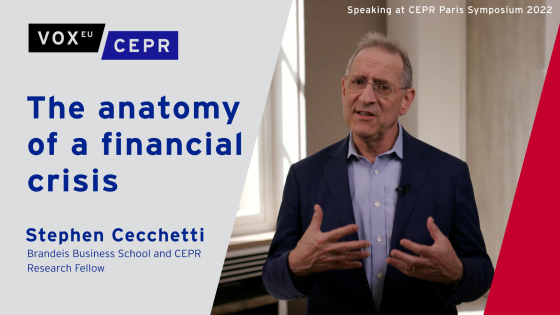In these hard times, with banks collapsing by the week and the arteries of credit clogged in spite of government interventions of unprecedented size and nature, drafting blueprints of reform of the financial system may seem an unnecessary distraction from more pressing challenges. It is not so.
Even agreeing on new rules (let alone implementing them) takes time, and, as an old saying goes, blessed is the man who plants a tree in the shadow of which he will never sit. Thus, on November 15 last year the G20 was convened to “lay the foundation for reform” so that a “global crisis, such as this one, does not happen again”.1
On that occasion an action plan based on some common principles was launched. Its immediate and medium-term actions (more than forty altogether) mostly consist of assignments of tasks to other international forums, like the Financial Stability Forum, the Basel Committee and the accounting standard setters organisations, or to national regulators and supervisors.
All these bodies have been working actively,2 with all sorts of committees meeting round the clock. We can be confident that, when they meet again next April, the G20 attendees will not complain for lack of paper(s) and detailed proposals. But then what? With the approach followed so far there is a risk that the G20 gets bogged down into dozens of partial solutions and technical details, losing sight of a reform pattern, the shape of which depends also on difficult political choices.
An international financial stability charter?
The work undertaken by the Basel Committee on Banking Supervision (on enhancing the Basel II capital and supervisory framework), by IASB and FASB, the accounting standard setters (on consolidation of off-balance sheet entities and on the problems of fair value accounting in times of crisis), by the Financial Stability Forum and by other national and international entities aims at mending, more than changing, the existing setup and is as such highly technical in nature.
The G20, an eminently political body, can hardly enter into the detailed merit of the proposed solutions. Its blessing is of course important, as it provides a multilateral sponsorship for those changes and innovations (for instance of banking accords or accounting standards) that have to be translated into national (or regional, in the case of Europe) legislation; but that is about all.
Political decisions require G-20 attention
While this bottom-up approach has its merits (speed of delivery being one), there are several more relevant and more general issues which cannot be solved merely on technical and efficiency grounds. They are issues requiring political choices that cannot be delegated to committees and forums but must be taken at the G20 level. I shall provide three examples.
The participants to the 15 November Summit pledged to “ensure that all financial markets, products and participants are regulated or subject to oversight”. The big issue behind this vaguely phrased aspiration is that of re-thinking the criteria with which the boundaries of prudential regulation are set (emphasis on leverage, for instance, leads to the inclusion of broker-dealers, investment banks and larger hedge funds in the regulated territory). The translation of that aspiration into a medium-term action is however disappointing; “A review of the scope of financial regulation, with a special emphasis on institutions, instruments and markets that are currently unregulated… should be…undertaken [by the appropriate bodies]”.
One would expect the G20 to reach itself a broad decision on the matter, without having to wait for a quasi-academic paper on “the scope of financial regulation”.
Consider next the large banks’ proprietary trading and quasi-hedge fund activities, which played a crucial role in the current crisis. The issue here is whether in the case of deposit-taking banking institutions such activities should be forbidden or restricted, perhaps by means of special capital requirements3.
A third example regards the treatment of entities which, though operating in major financial centres, are legally domiciled in thinly regulated offshore locations to exploit regulatory arbitrage.
More generally it may be asked how it is possible to reconcile the quest for greater information and disclosure with the very existence of tolerated offshore jurisdictions. I suspect that the unanimity which was so easily and quickly reached on the 15 November statement would be much harder to obtain when discussing the answers to be given to such and other similar problems. But it is precisely this difficulty, arising from the political nature of the issues at stake, which provides value added to a body like the G20 where a political agreement can be brokered.
At this stage, then, the objective to be pursued at the G20 level should be a sort of commonly agreed international financial charter4; a list of principle based but operationally meaningful guidelines on the more relevant issues, to be translated into rules at a later and different stage.
A recent report of the (private) Group of Thirty5 provides a good example of this method; four core recommendations based on some overarching principles are detailed into eighteen more precise, but still rather general recommendations. Of course, agreeing on a list of non-binding guidelines can only be a premise to a proper regulatory reform coordinated across different jurisdictions; but it is a necessary premise, as it gives a sense of direction and sets a benchmark against which regulatory policies can be gauged.
An interesting though more limited example can be found precisely in the financial field. The International Organization of Securities Commissions (IOSCO) adopted in 1998 a set of “Objectives and principles of securities regulation”, which are now used as a basis for an assessment of member countries’ compliance by IOSCO itself as well as by the IMF in its financial sector assessment programs.
Suppose you have your agreed international charter of prudential and stability objectives and principles. Would that exhaust the G20 menu? Hardly.
Institutions?
It is by now generally accepted that there is a deep contradiction between the inherent global nature of the financial system and the national fragmentation of financial regulation.
To put it more bluntly, each gamekeeper is confined within the boundaries of his estate, while poachers can freely move across different estates according to convenience (often being enticed by a tolerant gamekeeper wishing to increase the number of visitors to his own estate).
True, there is a complex web of international bodies and committees engaged in regulatory matters. However “the ‘system’, if it can be described as such, is certainly more a product of evolution than of intelligent design” and is based on voluntary agreements implemented on a ‘best endeavours’ basis6. Its fault lines have been made painfully evident by the current crisis; differences in regulatory regimes across jurisdictions played a role in the generation of the crisis, while lack of coordination and differences in resolution mechanisms have increased its costs.
Still, while almost everybody agrees that the present situation is highly unsatisfactory, no initiatives have been taken to improve it and the debate on possible solutions oscillates between the impossible and the irrelevant, without considering feasible intermediate position.
- The impossible is the recurring proposal of one global financial regulator7. The impossibility arises not only from the reluctance of nation states to relinquish jurisdiction but even more from the lack, so far, of a common rulebook and, even before, from deep differences in legal systems which would affect the enforcement powers of a hypothetical world regulator.
- The irrelevant is exemplified by the exhortations to enhance coordination and cooperation between regulatory authorities without establishing any kind of institutional framework, as is the case with the G20 statement (in spite of its suggestion to set up supervisory colleges for cross-border financial institutions) and with the Group of Thirty report.
Going beyond the primitive stage of cooperation-coordination on a voluntary basis would require some institutional foundations, but national jealousies and turf wars between regulators are a major obstacle to institutional evolution in the regulatory field8. The quest for a feasible intermediate solution between the two extremes of a single regulator and an institutional vacuum is thus a difficult political problem; this is why deserves a prominent place on a G20 agenda.
Two possibilities come immediately to mind, each having a different institutional weight.
The lighter one is the IOSCO model referred to above. An accepted charter of principles and objectives, a template for a network of Memorandums of Understandings “concerning consultation and cooperation and the exchange of information”; a role in reviewing and assessing the compliance of its members with the shared principles. With a very slim secretariat IOSCO provides an organisational structure and some rules serving as a useful constraint to the discretion of its members.
The heavier alternative is a WTO style organisation,9 the guardian of a precise rulebook based on binding agreements negotiated between members of the organisation with jurisdiction over the settlement of disputes regarding the alleged violations of the agreements; a heavy secretariat headed by a powerful director-general. In an evolutionary process the first model could gradually grow into the second – as happened with the transition from GATT to WTO.
In order to avoid another addition to an already overcrowded arena, in either case the rather nebulous Financial Stability Forum could, with an extended membership, easily be restructured and transformed into a Financial Stability Organization.
The less one dreams about a new Bretton Woods, the better. So far we are miles away from that standard. Still, it would be a good sign if this time the G20 meeting lasted more than one day. It would mean that relevant and contentious issues have entered the agenda.
Editors' note: This column is a Lead Commentary on Vox's Global Crisis Debate page; see further discussion on Vox’s “Global Crisis Debate” page.
6 Howard Davies, “How can we regulate capitalism?”, LSE papers presented to the conference “Nouveau monde, nouveau capitalisme, Paris, January 2009. For a thorough analysis of the present system, se Howard Davies and David Green, Global Financial Regulation: The Essential Guide, Polity Press, 2008.
8 Europe is an example: while there is a single market for financial services, financial supervision remains organised along national lines, the damaging consequences of this contradictory situation have been felt in the course of the current crisis. See “Concrete Steps Towards More Integrated Financial Oversight: The EU’s Policy Response to the Crisis”, A report by a CEPS Task Force, Centre for European Policy Studies, Brussels, December 2008; Howard Davies, “Europe’s banks need a federal fix”, Financial Times, January 14 2009; Fabrizio Saccomanni, “Nuove regole e mercati finanziari”, 19 January 2009.. Though in a different way, the regulatory framework is no less unsatisfactory in the US: in the words of former Treasury Secretary Paulson “Remarks on Blueprint for regulatory reform”, March 31 2008) “few, if any, will defend our current balkanized system as optimal”.
9 This possibility is mentioned in Barry Eichengreen’s essay “Not a New Bretton Woods but a New Bretton Woods process” in Eichengreen and Baldwin (2008).



